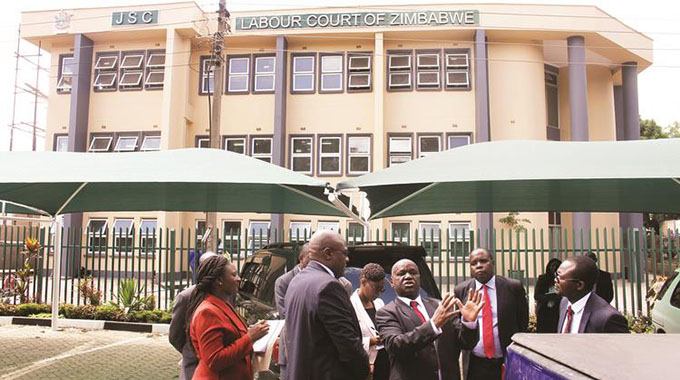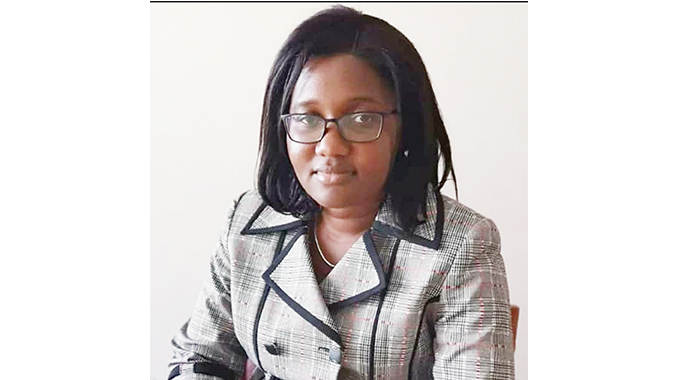Provision of virtual court sittings under Amendment Bill

Patrick Chitumba, Midlands Bureau Chief
DEROGATORY words such as blind, deaf and dumb should be removed as official court words to describe people living with disabilities in line with respecting their dignity and human rights.
There is also a need to embrace information communication technology and the access to justice by considering virtual courts but with emphasis on the provision of mobile virtual centres across the country so that people in need of court services such as filing for a peace order can be assisted.
These are some of the points that were raised by members of the public who attended the Parliamentary Portfolio Committee on Justice, Legal and Parliamentary Affairs public hearing on the Judiciary Laws Amendment Bill in Gweru yesterday.
The Bill, among other highlights, seeks to amend the Constitutional Court, Supreme Court and High Court Acts, Administrative Court and Labour Court to provide for virtual court sittings in both civil and criminal proceedings subject to consent from both parties.
It also provides for the establishment of the Messenger of the Labour Court to enforce judgments made at the Labour Court.

Labour Court of Zimbabwe
In line with the Parliamentary Legislative process, the Portfolio Committee is conducting public hearings across the country.
In Gweru, Member of Parliament for Gweru Central Mr Brian Dube led the committee in getting views from members of the public.
“The Bill, if approved, will see changes in the Criminal Law (Codification and Reform) Act. There will be a need for a sign language interpreter at the courts. In most cases the courts won’t be having a sign language interpreter and that normally results in the accused person being remanded in custody as they wait for such an interpreter,” said Mr Dube.
He said there are also matters to do with the jurisdiction of the magistrate’s court in matters to do with the Electricity Act, Copper Act where a magistrate has to commit the docket to High Court for direction.
“After Covid-19 it has become apparent that you are not always able to be physically in court hence the proposal for virtual courts. We didn’t go to court for two years’ because of Covid-19. What if there is another pandemic? So these are some of the points you need to address in your submissions,” said Mr Dube..
Mr Cornelius Selipiwe from Gweru Residents and Ratepayers Association said the Labour Court amendment is a welcome development because of late it had been difficult to enforce rulings from that court.
“One was forced to go to other courts to get the ruling enforced. So we need the Messenger of the Labour Court to enforce rulings from that court,” he said.
Mr Selipiwe said the issue of virtual courts is also noble.
“There is only one challenge, in Zimbabwe, which has to do with connectivity in terms of Internet use. So How do you propose to address that? We don’t want a situation where some parties will fail to access virtual courts while others are able to,” he said.
Mr Selipiwe said the internet in the country is not stable as there are a lot of disconnections even during Zoom meetings at companies,
“Virtual courts idea is noble but as much as we welcome this, we should think or align it with connectivity. On people with hearing impairments we need sign language people. At such meetings we are having now, we don’t have interpreters. I encourage you to address that matter so that they also participate,” he said.
Mr Wilfred Matanda from Mkoba 7 suburb said some words used in the courts are derogatory such as imbecile or deaf and dumb.
“Derogatory words such as blind, deaf and dumb should be removed as official court words to describe people living with disabilities in line with respecting their dignity and human rights. I will be happy if words such as blind, idiocy or dumb are removed from the court system. People with disabilities should be respected despite their disabilities. Virtual sittings are a welcome development but they are not clear in terms of the costs. We look at data charges during the sittings, who will cover the costs?” he asked.

Mrs Takashinga Pamacheche-Mubonesi
Prominent Gweru Lawyer Mrs Takashinga Pamacheche-Mubonesi said the idea of virtual sittings is noble and in line with the technological advances being made worldwide.
“However, the Bill seems to be discriminatory because it contains a qualification that it can be undertaken if facilities are readily available or obtainable. This basically means where the facilities are not available or obtainable, parties in that area are automatically affected yet this is meant to benefit the whole nation and increase access to justice. Apart from the challenges of connectivity and electrical challenges, there will be a challenge of accessibility. The idea has to be thought out properly not to infringe parties’ right to access justice,” she said.
Mrs Pamacheche-Mubonesi said someone will need internet access to participate in a virtual court set up.
“Proper consideration has to be made because it will create a huge problem. We will see people being denied access to justice. We hope there will be mobile virtual centres across the country so that our people can access the internet,” she said.
Another lawyer Mr Willington Davira concurred with Mrs Pamacheche-Mubonesi.
“The idea of virtual court sittings is welcome, however, attention is drawn to the provision on the parts of the Bill that introduce these sittings. The provision states that there must be consent of the parties to these sittings. In that regard the Bill should then state in black and white the procedure to be followed in the event that one of the parties wants a virtual sitting and the other doesn’t want,” he said.
Mr Davira said the other point is the Jurisdiction of the High Court which he said should be limited or controlled geographically as per the Draft Practice Direction which stipulates which High Court to use from where.
“We don’t want a situation where a person from Gweru will approach a Mutare High Court well knowing that the other party is financially challenged to attend the Mutare High Court,” he said.










Comments